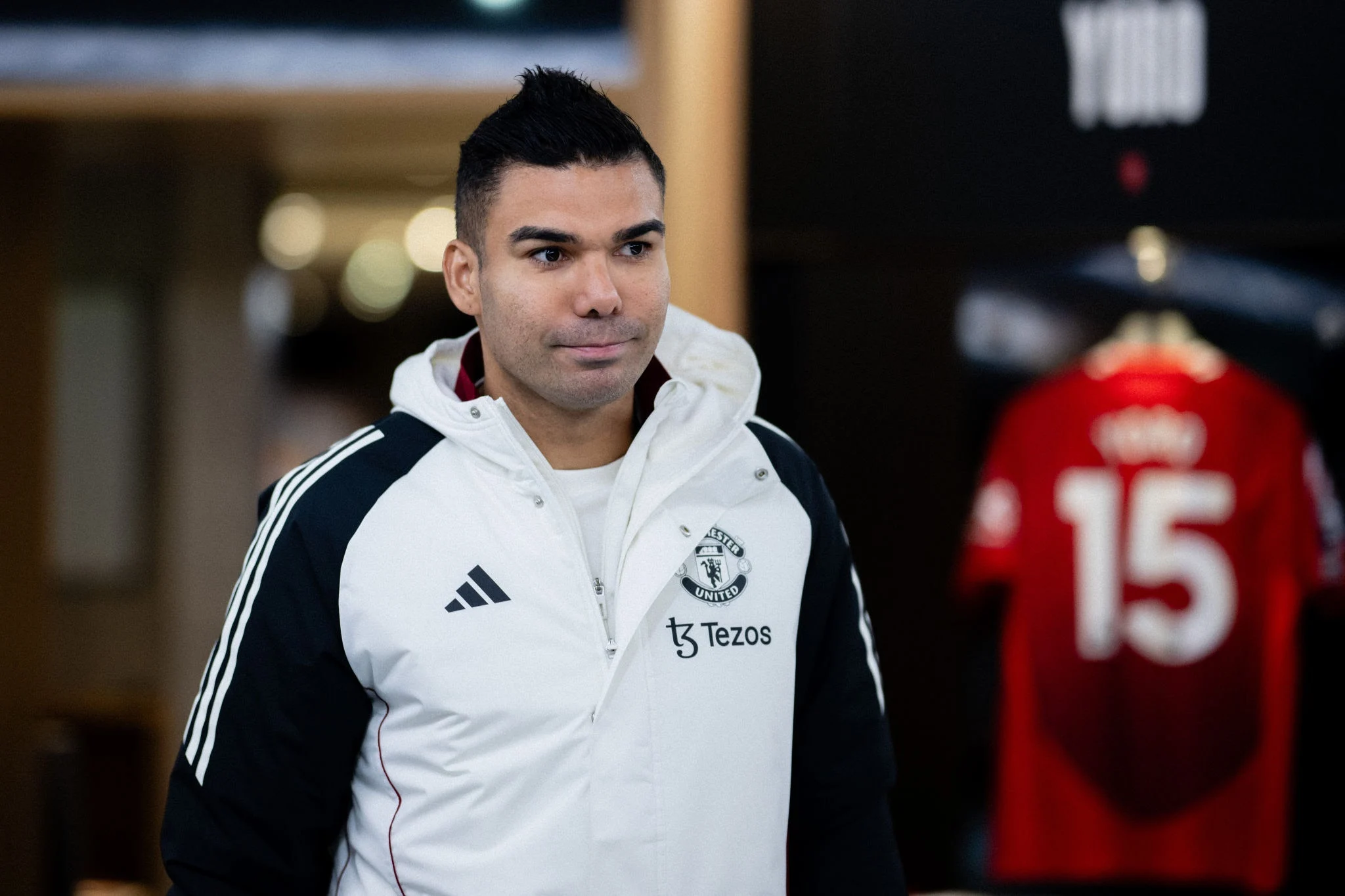Manchester United are prepared to part ways with Casemiro during the January transfer window, provided they can avoid incurring a financial loss on the deal.
This decision comes as the club faces mounting pressure to improve its Profit and Sustainability Ratio (PSR) while restructuring its squad.
Since his high-profile move from Real Madrid in August 2022 for £70 million, the Brazilian midfielder has experienced an inconsistent spell at Old Trafford. Despite starting 16 of his 22 appearances this season, Casemiro has fallen down the pecking order following the managerial shift to Ruben Amorim in November.
The 32-year-old is currently tied to a lucrative £350,000-a-week contract that runs until June 2026. However, his age, declining form, and hefty wages have made him a candidate for departure as United attempt to balance their books and streamline their operations.
Financial Realities Behind the Decision
United reportedly have approximately £15 million left to amortize on Casemiro’s transfer fee. To avoid a loss on their financial statements, any offer must at least cover this amount. Sources close to the situation suggest the club is willing to accept a minimal transfer fee if it means removing his significant wages from the books.
The club’s financial restructuring efforts have intensified under the leadership of Sir Jim Ratcliffe, who has prioritized cost-cutting measures since assuming control of United’s football operations. Casemiro’s case highlights the challenges of moving high-earning, aging players in the current transfer market.
Saudi Arabia: A Potential Destination
Saudi Arabia has emerged as a potential landing spot for Casemiro, though opportunities in the region are reportedly limited. Clubs in the Saudi Pro League have been known to target high-profile players, and United see the market as an ideal avenue for offloading the midfielder.
The Red Devils would welcome any offer from Saudi clubs, even for a nominal fee like £5 million, if it ensures Casemiro’s departure and reduces their wage bill. However, competition for available roster slots in Saudi Arabia may complicate such a move.
Advertisement
Latest Press Conference
We’re on Social Media



Challenges in Offloading High-Earning Players
United’s struggles with Casemiro’s potential exit reflect a broader issue at the club: the difficulty of moving players who are aging, underperforming, and on substantial contracts. Finding suitors willing to match the midfielder’s current salary has proven challenging, particularly within European markets.
The club is reportedly willing to “write off” the remaining value of Casemiro’s transfer fee if a deal can neutralize their PSR obligations. This pragmatic approach underscores United’s urgency to address their financial situation, even if it means taking a loss in practical terms.
Managerial Shift and Squad Dynamics
Casemiro’s reduced role under Ruben Amorim further signals United’s intention to refresh their squad with younger, more dynamic talent. Amorim’s tactical adjustments have emphasized different profiles in midfield, leaving limited room for the experienced Brazilian.
Despite his diminished role, Casemiro’s contributions in the past cannot be ignored. His performances were instrumental during his initial months at the club, particularly in helping stabilize United’s midfield. However, with the team’s priorities shifting, the veteran now finds himself surplus to requirements.
What’s Next for United and Casemiro?
The upcoming weeks could determine the midfielder’s immediate future. United remain hopeful of finding a buyer willing to meet their financial criteria, with Saudi Arabia continuing to be their preferred destination.
For Casemiro, the decision represents a crossroads in his career. A move could provide him with an opportunity to secure regular playing time and a fresh challenge, while United focus on building a squad aligned with their long-term goals.
As the January window unfolds, Casemiro’s situation will be closely monitored by fans and analysts alike. His potential departure could symbolize a broader shift in Manchester United’s transfer strategy, emphasizing financial prudence and squad rejuvenation over short-term gains.
The Red Devils face a delicate balancing act: achieving their financial objectives while ensuring the team remains competitive on the pitch. How they handle Casemiro’s case may set the tone for future dealings under their evolving regime.
